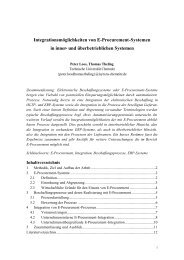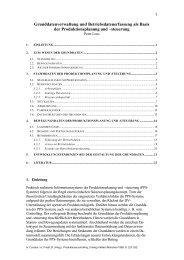Hedonic and Utilitarian Motivations of Social Network Site Adoption
Hedonic and Utilitarian Motivations of Social Network Site Adoption
Hedonic and Utilitarian Motivations of Social Network Site Adoption
Create successful ePaper yourself
Turn your PDF publications into a flip-book with our unique Google optimized e-Paper software.
6 Findings<br />
For our main study, we surveyed students from a German university attending an Introduction to<br />
computer science course, resulting in a sample size <strong>of</strong> 415 complete questionnaires. 220<br />
respondents were male (53 percent); 195 were female (47 percent); the average age was 21.17 years<br />
(st<strong>and</strong>ard deviation: 2.63); for Perceived Enjoyment, Perceived Usefulness, Perceived Ease <strong>of</strong> Use,<br />
<strong>and</strong> Behavioral Intention to Use, the mean (st<strong>and</strong>ard deviation) was 5.11 (1.14), 5.47 (1.07), 5.52<br />
(1.02), <strong>and</strong> 6.27 (1.15), respectively (based on the item average <strong>of</strong> each construct).<br />
To test our measurement model for reliability, validity, <strong>and</strong> model fit, we computed Cronbach’s<br />
alpha for each construct using SPSS 21.0.0.0 <strong>and</strong> performed a confirmatory factor analyses using<br />
AMOS 21.0.0.0. Parameters were estimated using maximum likelihood <strong>and</strong>, since our data was not<br />
distributed joint multivariate normal, a bias-corrected bootstrapping approach with 2000<br />
replications was used to test for significance (Byrne, 2001; Krasnova et al., 2010). Cronbach’s alpha<br />
was greater than .82 for all constructs; all items loaded high (more than .720) <strong>and</strong> significant<br />
(p







